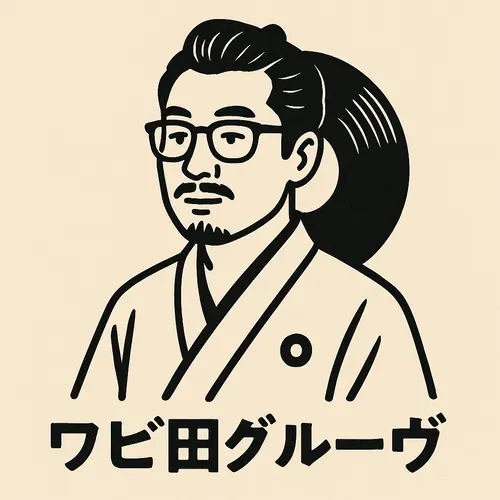Museums as Architectural Art ─ 7 Japanese Museums Where the Building Steals the Show
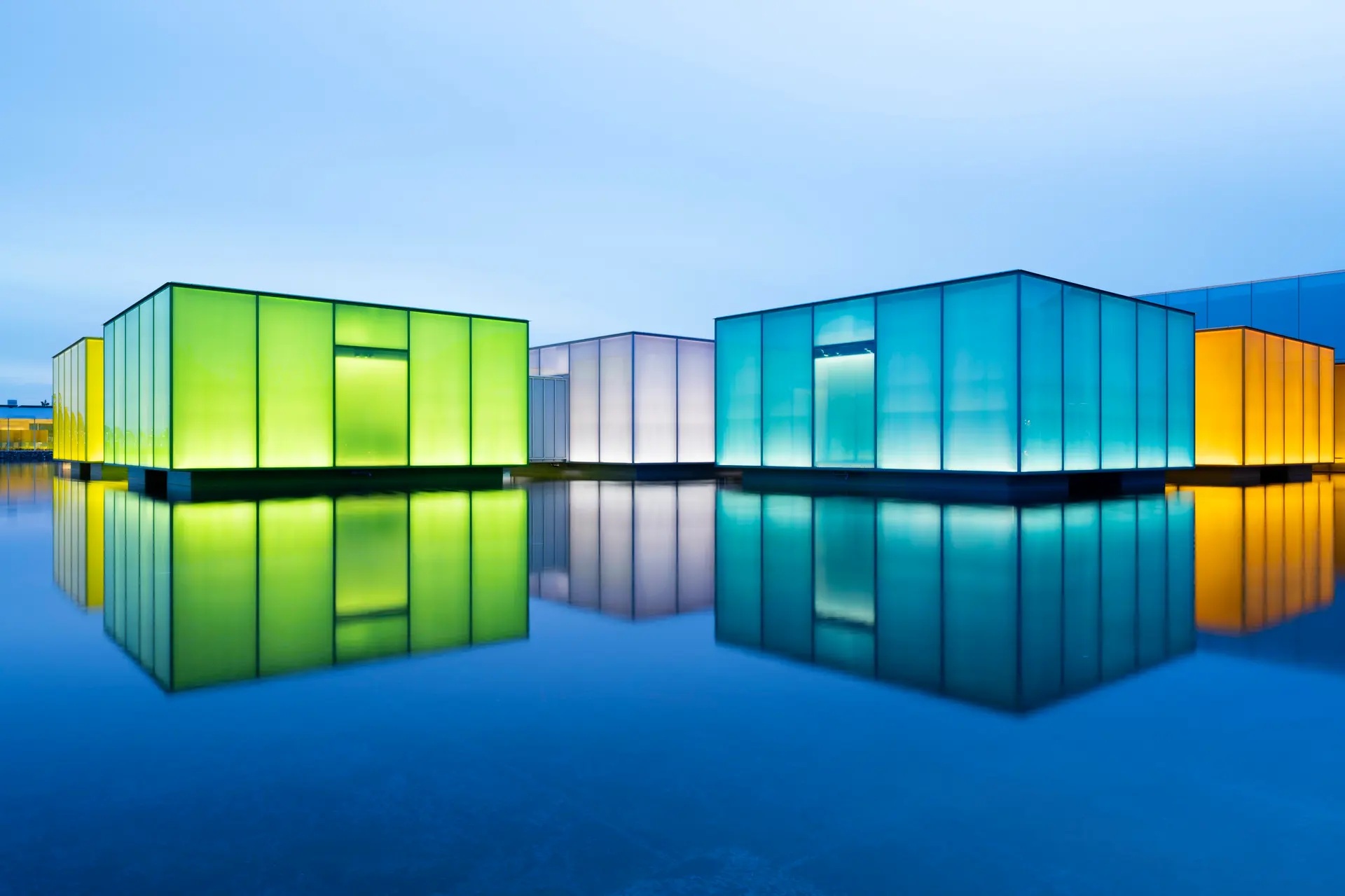
Worth the ticket just for the exterior.
Spaces so powerful, the architecture itself shakes your soul.
When you hear “museum,” you probably think the artworks inside are the stars. But in Japan, there are museums where the building itself grabs all the attention. Just one look at the exterior can take your breath away. Step inside, and the architecture surrounds you like a living piece of art. These are places where you don’t just “go to see an exhibition”—you go to experience the architecture. Here are 7 museums across Japan where the design and space itself are unforgettable.
1. Tokorozawa Sakura Town (Tokorozawa, Saitama)
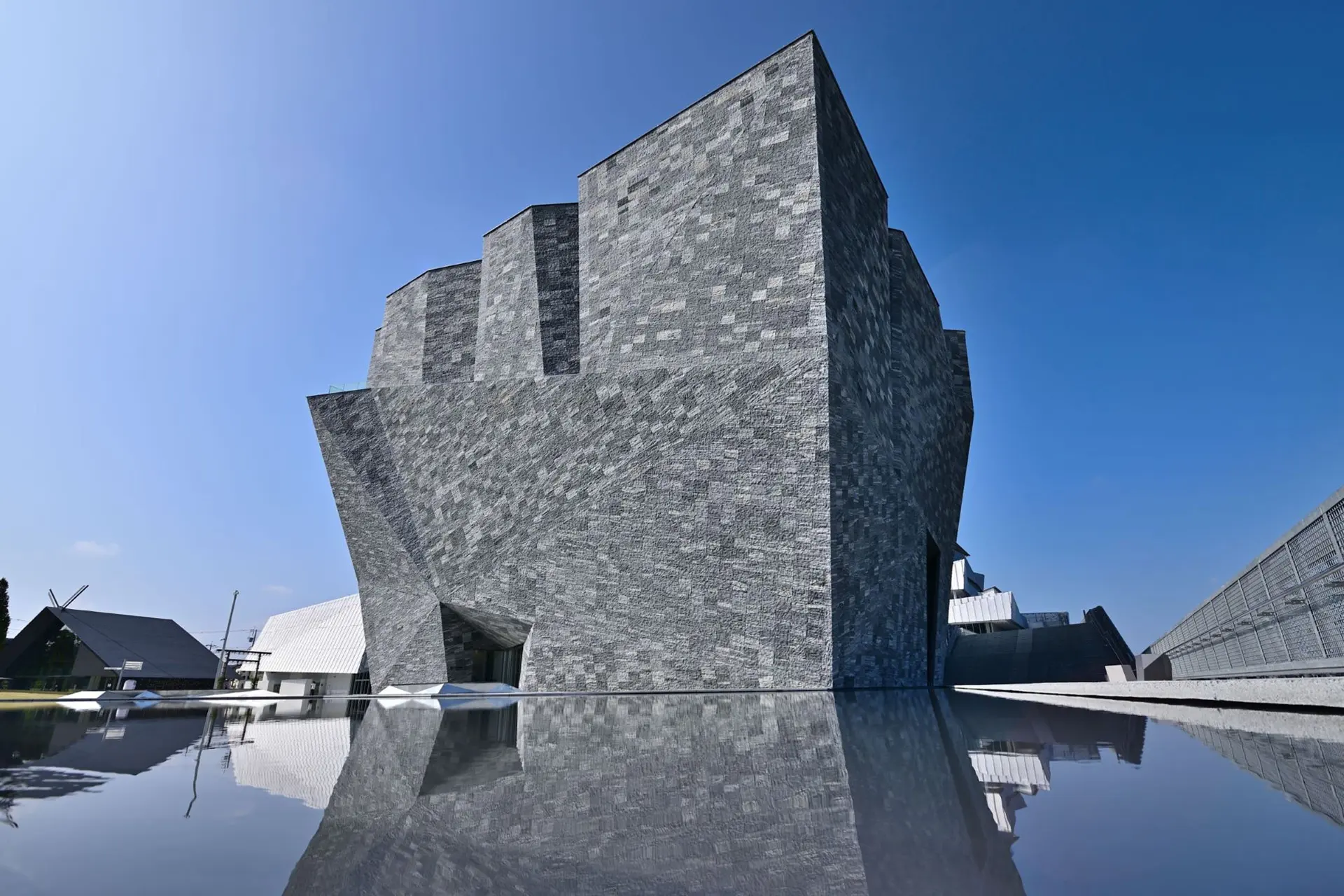 | 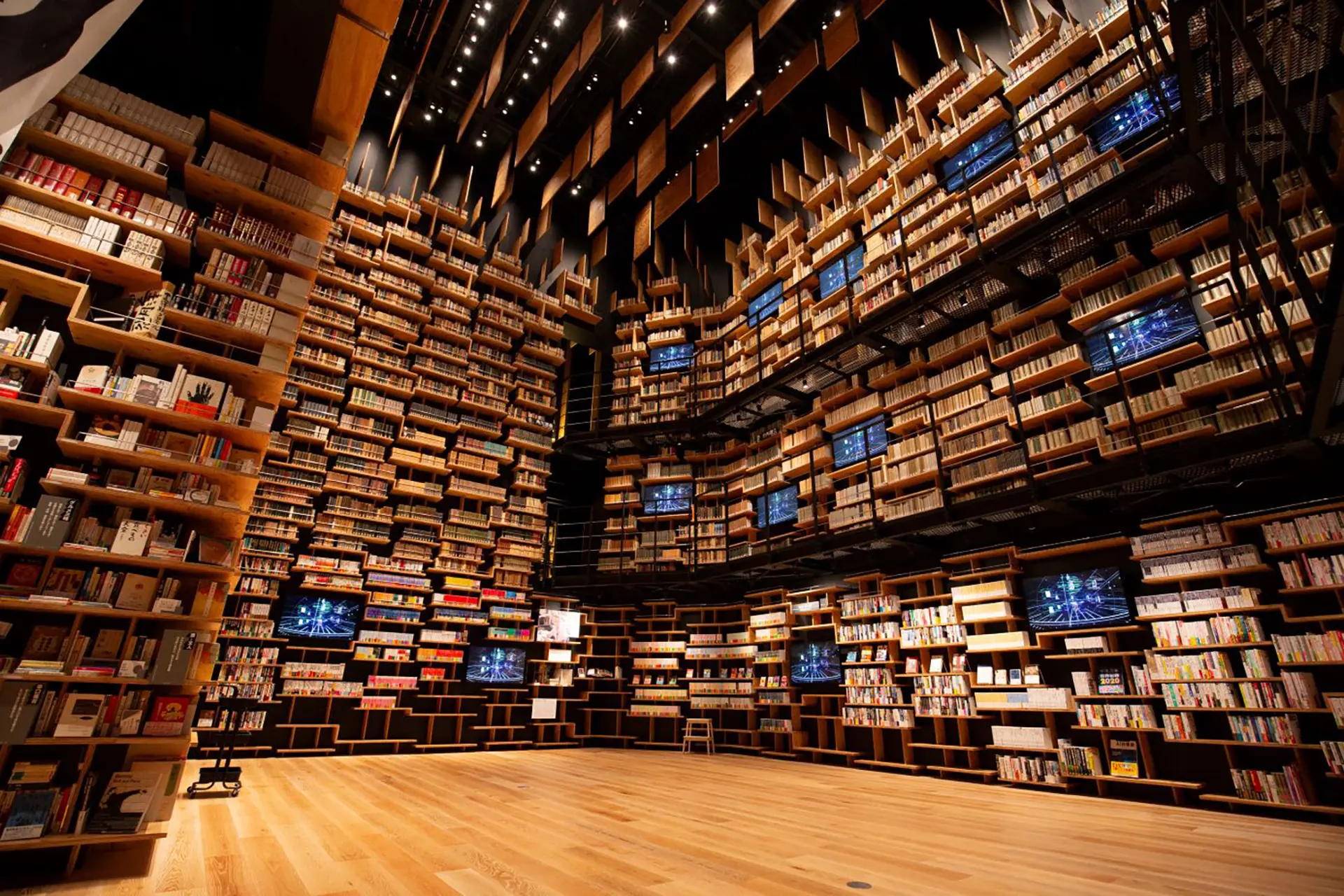 |
Built by KADOKAWA with absolute seriousness, Tokorozawa Sakura Town is a massive cultural complex where anime, manga, light novels, literature, architecture, food, and events all collide. It’s a cultural crossroads where both otaku energy and intellectual curiosity get their fill.
The standout is the Kadokawa Musashino Museum, designed by world-renowned architect Kengo Kuma. Looking like a massive stone monolith, its otherworldly exterior shifts expression depending on the angle. From afar or up close, its scale and form will pull you in and won’t let go.
| Facility | Tokorozawa Sakura Town |
| Hours | 10:00–18:00 (last entry 17:30) |
| Closed | Every Tuesday (open if Tuesday is a holiday) Check calendar for updates |
| Admission | Adults ¥3,300 / Jr. & Sr. High ¥2,800 / Elementary ¥2,000 Reservations required via this link |
| Photography | Allowed (no video, flash, or selfie sticks) |
| Address | 3-31-3 Higashitokorozawawada, Tokorozawa, Saitama 359-0023 Google Map |
| Official Site | Tokorozawa Sakura Town |
2. Simose Art Museum (Otake, Hiroshima)
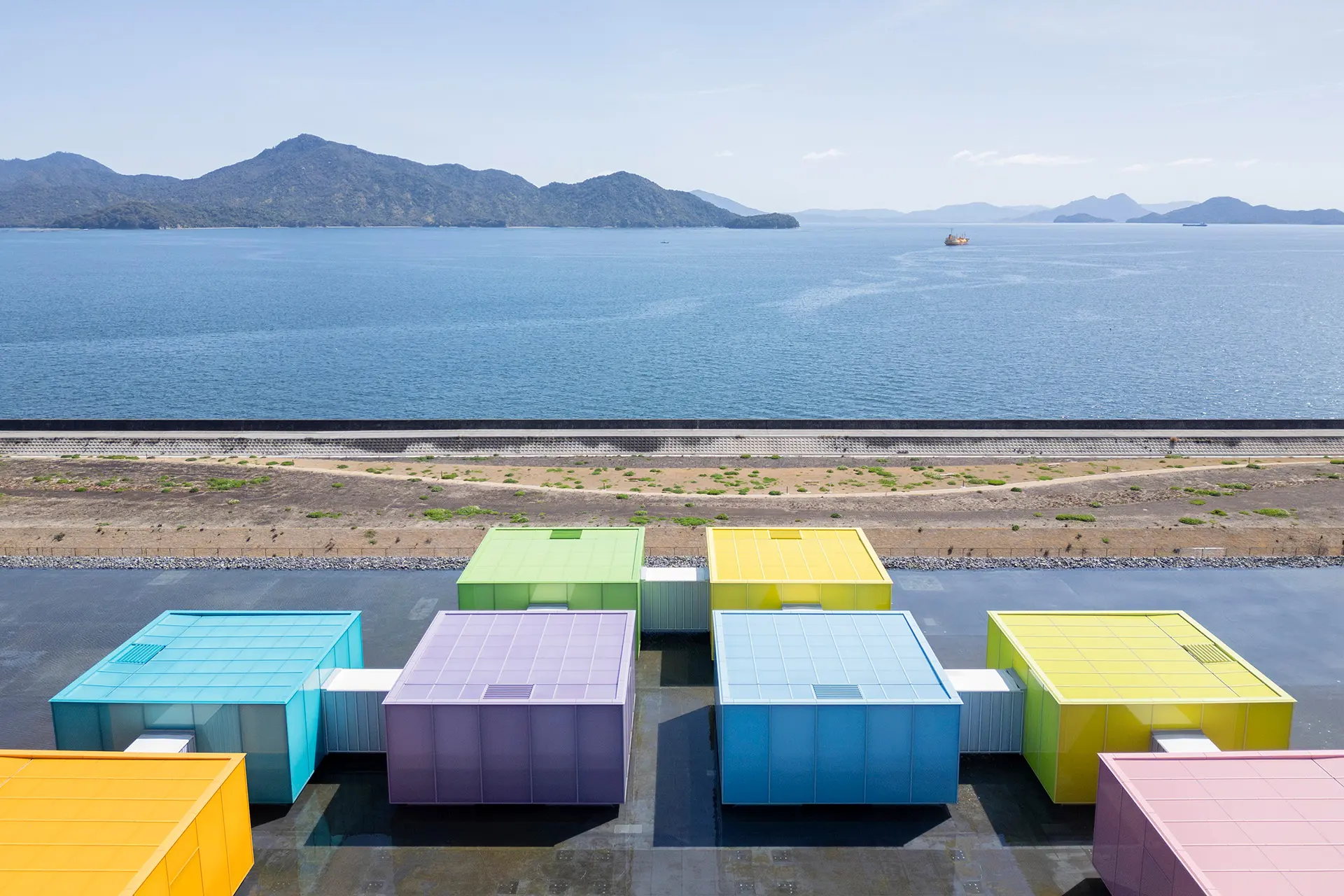 | 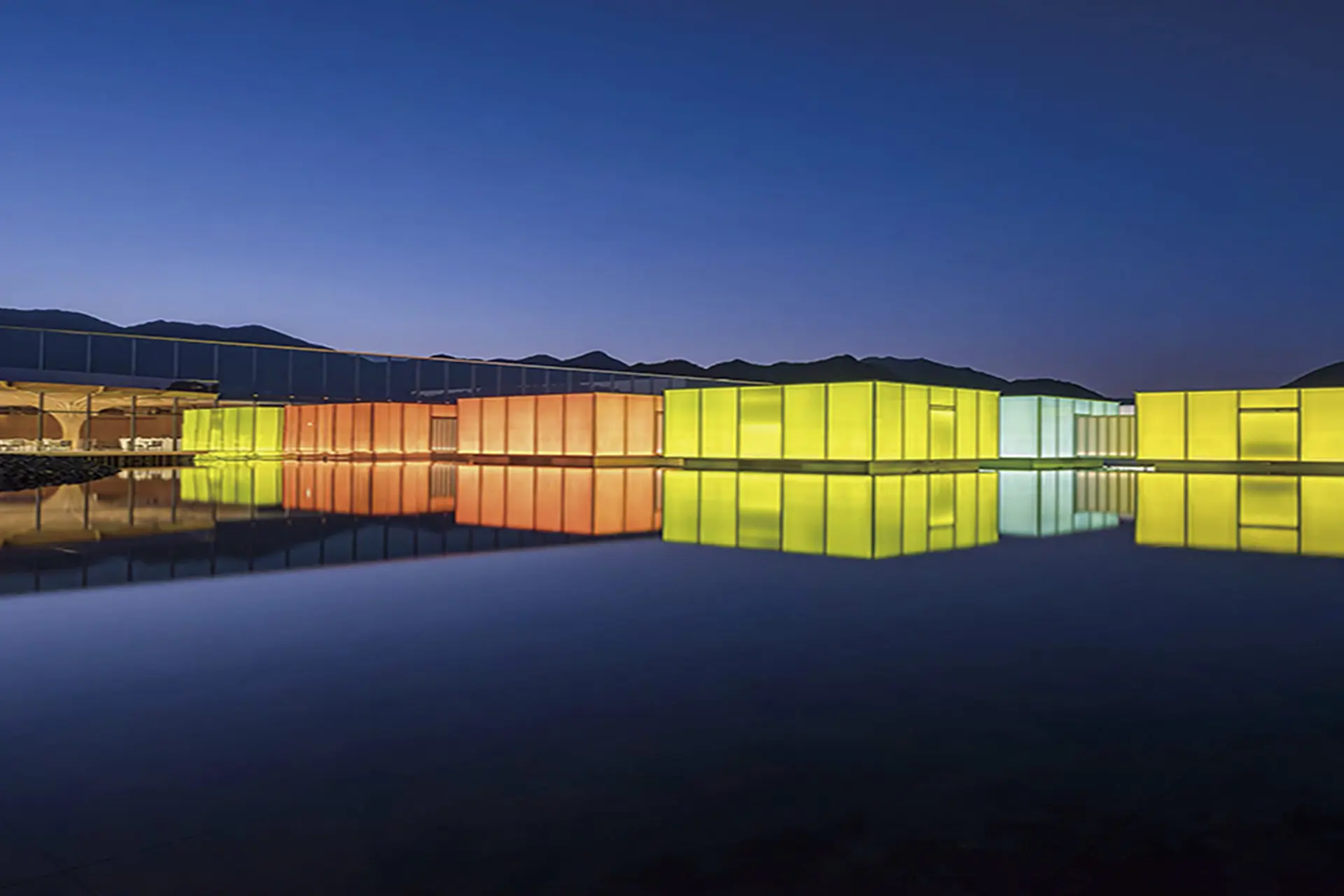 |
Opened in March 2023 in Otake, Hiroshima, Simose Art Museum looks like it came straight out of a sci-fi movie. Designed by Pritzker Prize–winning architect Shigeru Ban (famous for cardboard architecture), its colorful glass pavilions float on a shallow reflecting pool like islands you can walk between. Their arrangement can even be changed—blurring the line between art and architecture. A mirrored wall reflects the Seto Inland Sea, stretching the horizon infinitely. Just one year later, in 2024, it was recognized internationally as “the most beautiful museum in the world.”
| Facility | Simose Art Museum |
| Hours | 9:30–17:00 (last entry 16:30) |
| Closed | Mondays (open on holidays), year-end, and exhibition change periods |
| Admission | Adults ¥2,000 / College & HS ¥1,000 / Otake residents ¥1,500 / Under JHS free |
| Photography | Allowed (no video, flash, or selfie sticks) Some exhibitions may restrict photography |
| Address | 2-10-50 Harumi, Otake, Hiroshima 739-0622 Google Map |
| Official Site | Simose Art Museum |
3. Art Tower Mito (Mito, Ibaraki)
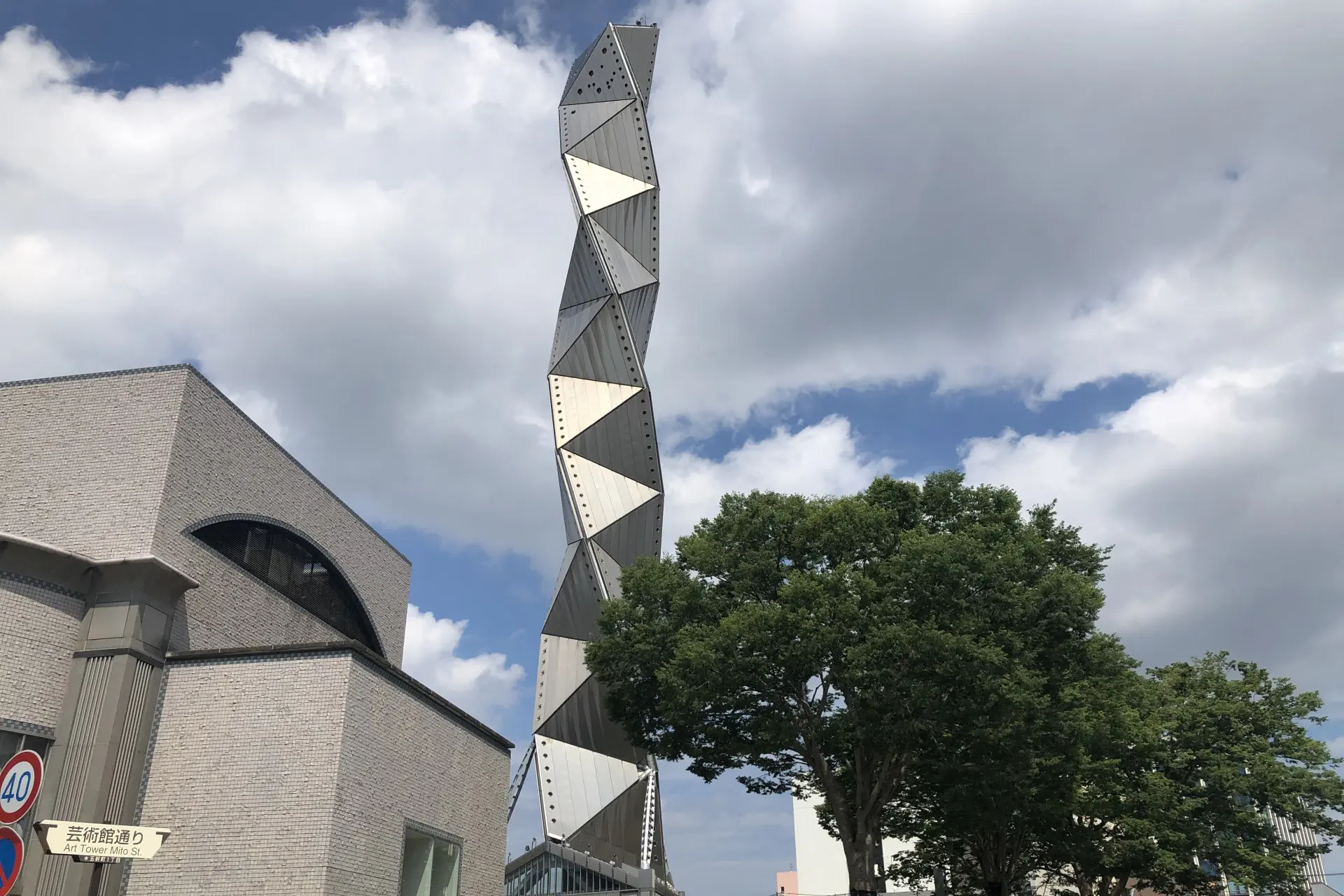 | 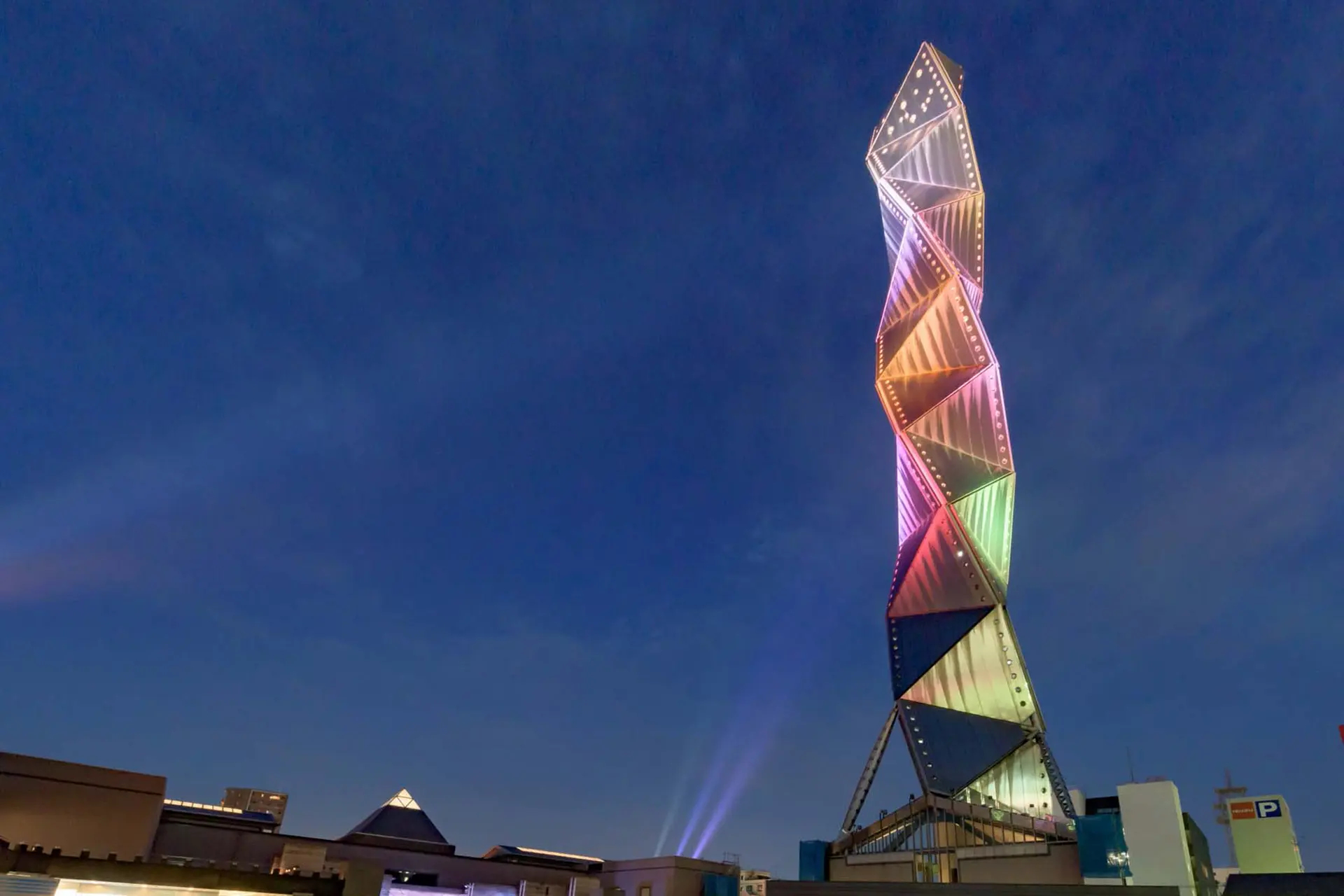 |
The twisting glass tower near Mito Station is the iconic landmark of Art Tower Mito. Designed by the late world-famous architect Arata Isozaki, its spiraling form practically demands you stop and look up.
Inside, visual arts, theater, and music constantly intersect, with experimental exhibitions and performances from artists worldwide. It’s a cultural hub where something new is always happening.
| Facility | Art Tower Mito (Tower) |
| Hours | Weekdays 9:30–18:00 / Sat, Sun, Holidays 9:30–19:00 |
| Closed | Mondays (or next day if Monday is a holiday), year-end |
| Admission | Adults ¥200 / Elementary–JHS ¥100 |
| Photography | Depends on exhibition. Confirm at entrance or by phone |
| Address | 1-6-8 Goken-cho, Mito, Ibaraki 310-0063 Google Map |
| Official Site | Art Tower Mito |
4. Teshima Art Museum (Teshima, Kagawa)
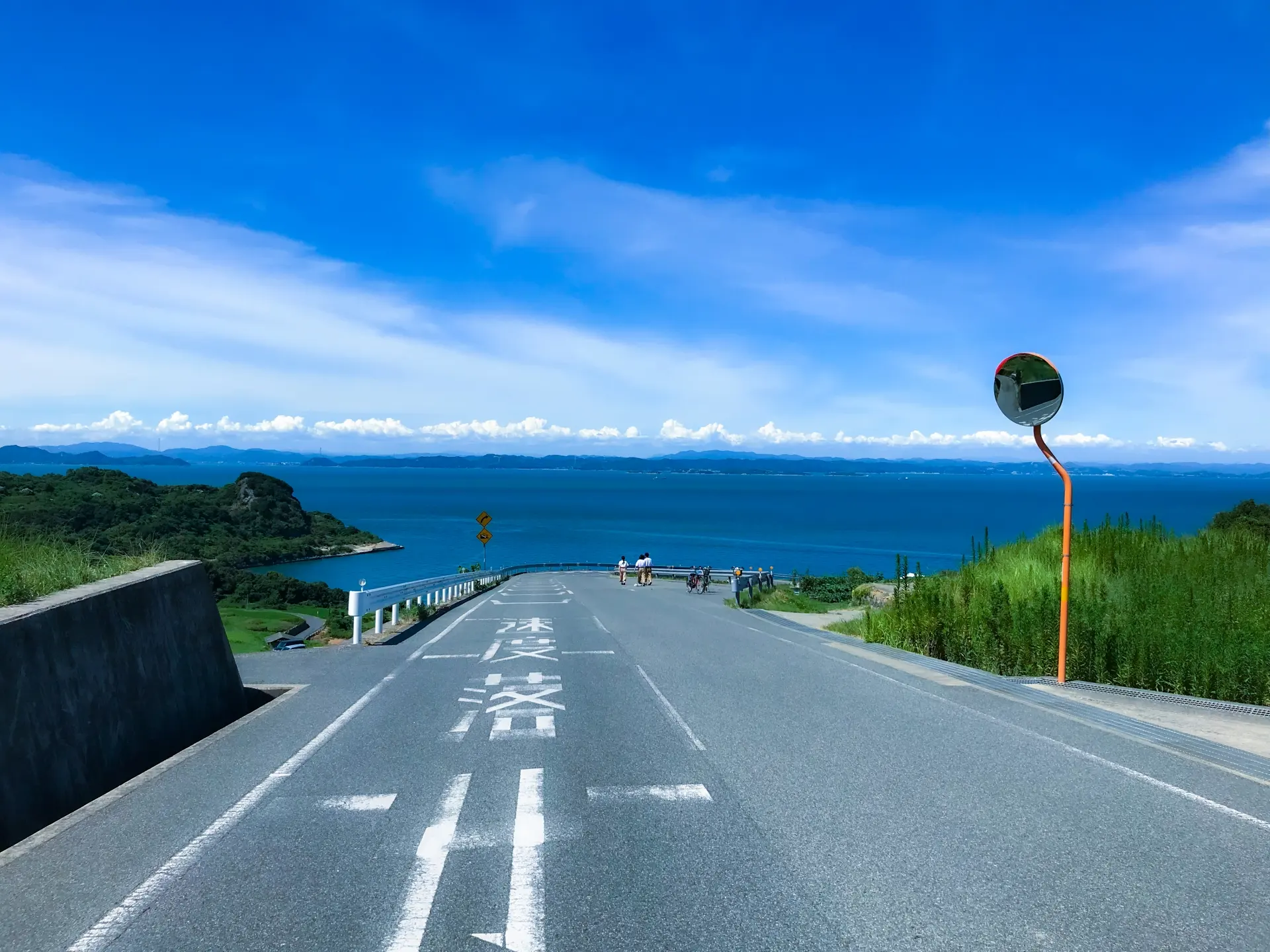 | 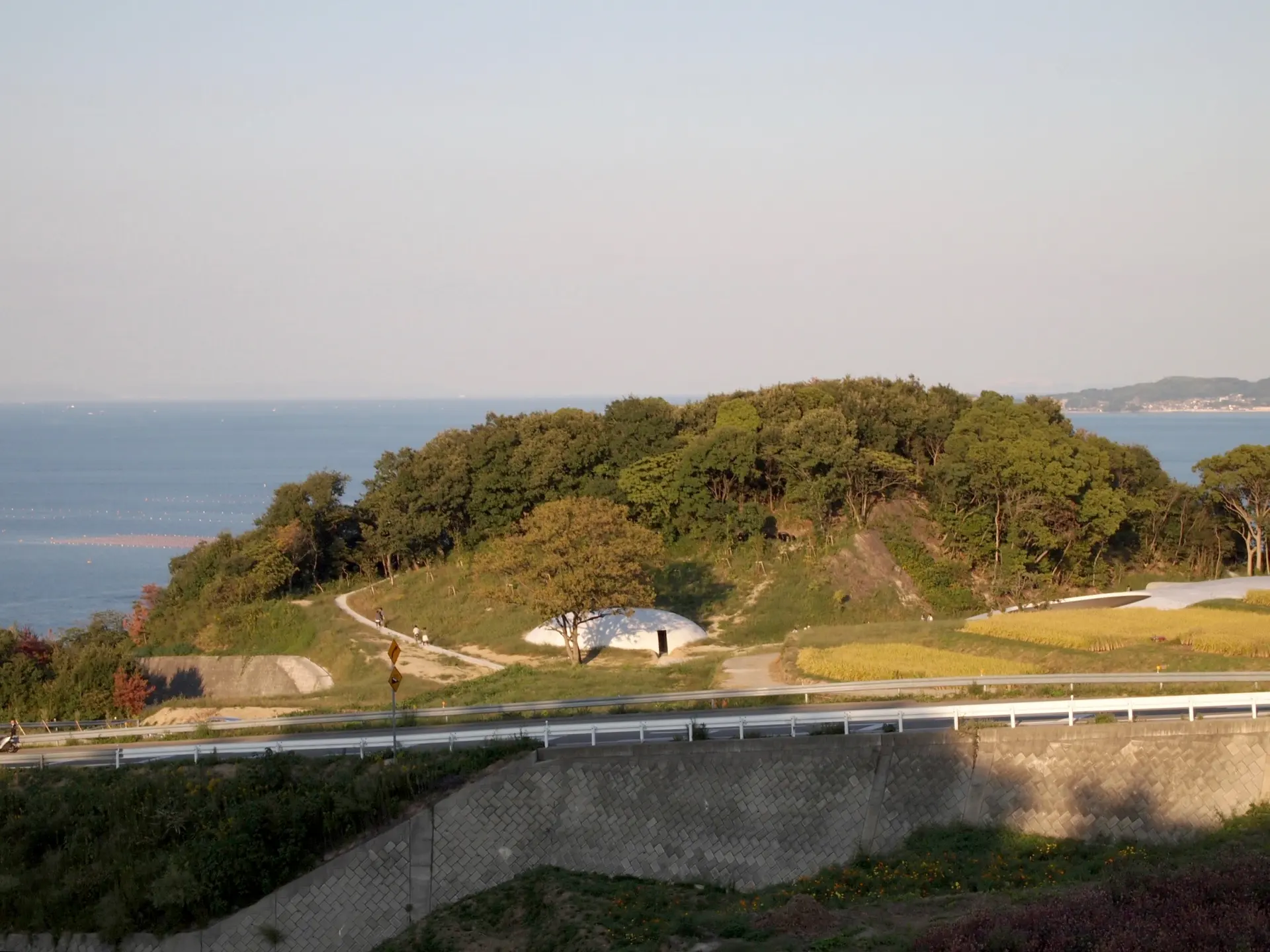 |
A sacred site for the Setouchi Triennale, the Teshima Art Museum is a collaboration between artist Rei Naito and architect Ryue Nishizawa. Its form resembles a single water droplet solidified into architecture.
Natural light filters into a silent, cavernous space where water slowly seeps and flows across the floor. It’s less “a building” and more “an environment you surrender yourself to.” With photography forbidden, the experience feels almost spiritual—a reminder that sometimes the most profound art is simply inhabiting a phenomenon.
| Facility | Teshima Art Museum |
| Hours | Mar 1–Sep 30: 10:00–17:00 (last entry 16:30) Oct 1–Feb end: 10:00–16:00 (last entry 15:30) |
| Closed | Varies seasonally. See calendar |
| Admission | Varies by exhibition |
| Photography | Not allowed (outside & shop area only for personal use) |
| Address | 607 Karato, Teshima, Tonosho-cho, Kagawa 761-4662 Google Map |
| Official Site | Benesse Art Site Naoshima |
5. The National Art Center, Tokyo (Roppongi, Tokyo)
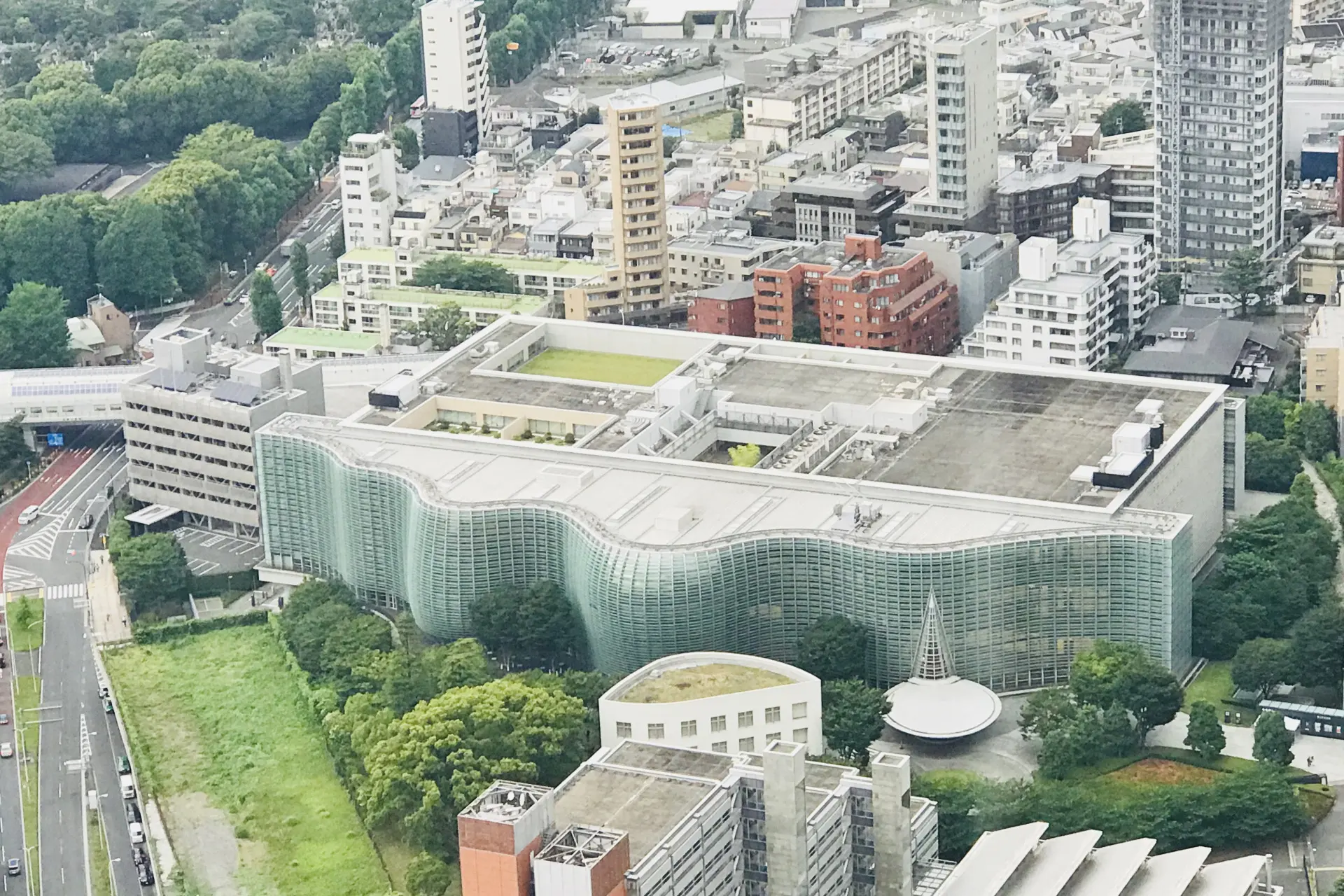 | 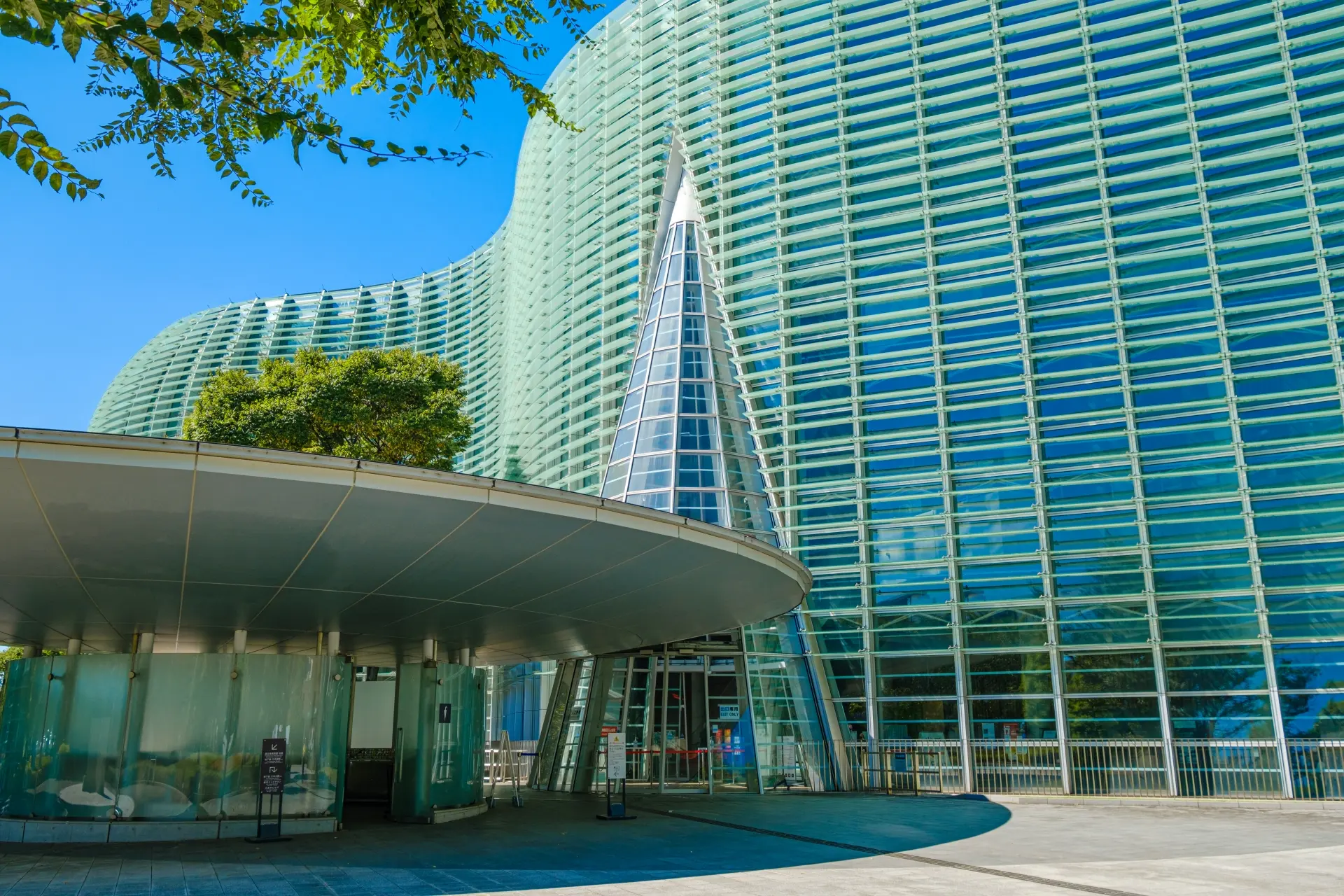 |
With no permanent collection, The National Art Center, Tokyo operates entirely on temporary exhibitions. Every visit is a new encounter with art.
Designed by Kisho Kurokawa, the sweeping glass façade undulates like a wave, reflecting different moods by day and night. Inside, vast atriums make the space itself part of the experience. It’s a museum where architecture is just as compelling as the art on display.
| Facility | The National Art Center, Tokyo |
| Hours | 10:00–18:00 (last entry 17:30) Fridays & Saturdays until 20:00 |
| Closed | Tuesdays, year-end, plus special closures. See calendar |
| Admission | Varies by exhibition |
| Photography | Allowed for personal use only (no commercial) |
| Address | 7-22-2 Roppongi, Minato, Tokyo 106-8558 Google Map |
| Official Site | The National Art Center, Tokyo |
6. MIHO MUSEUM (Koka, Shiga)
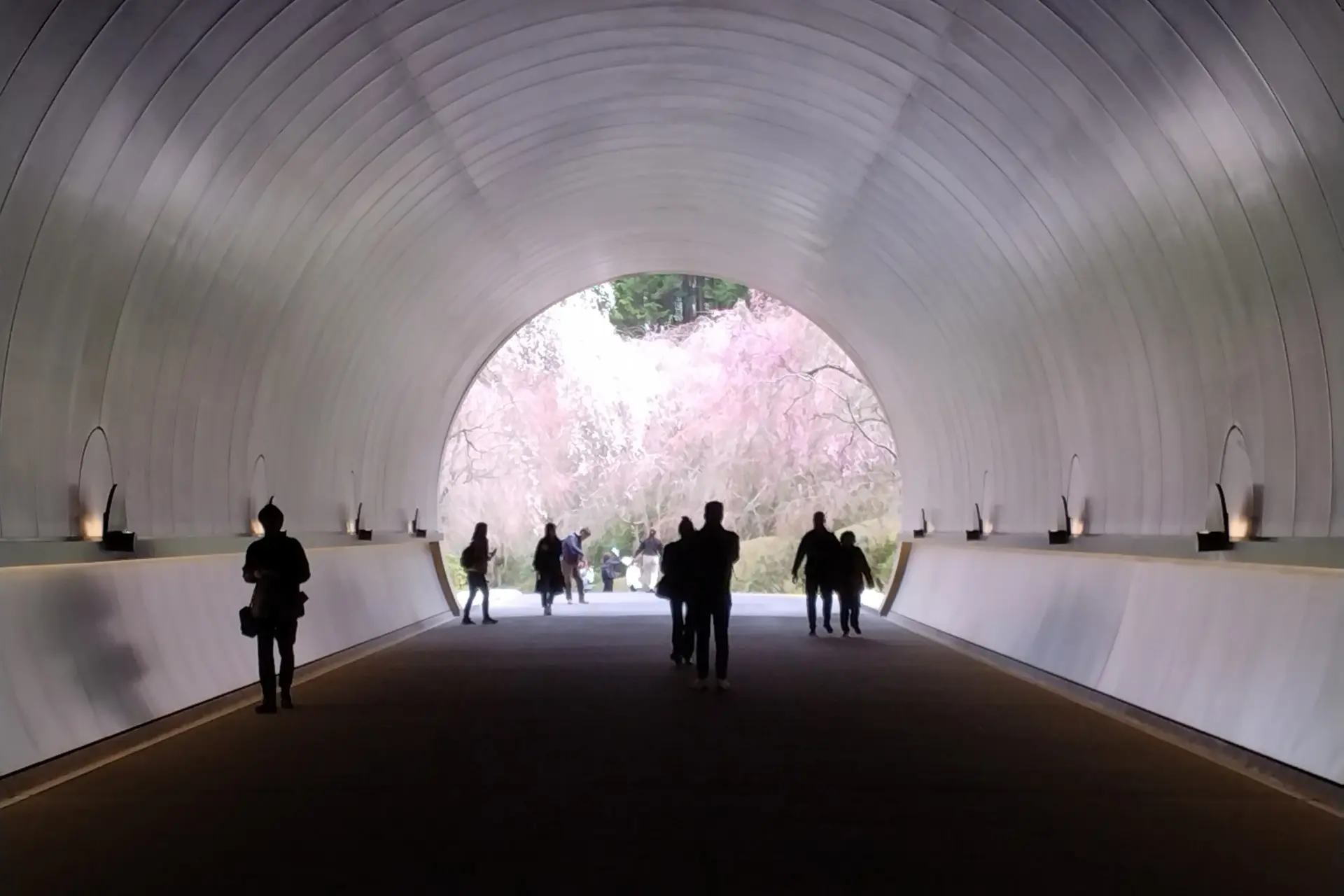 | 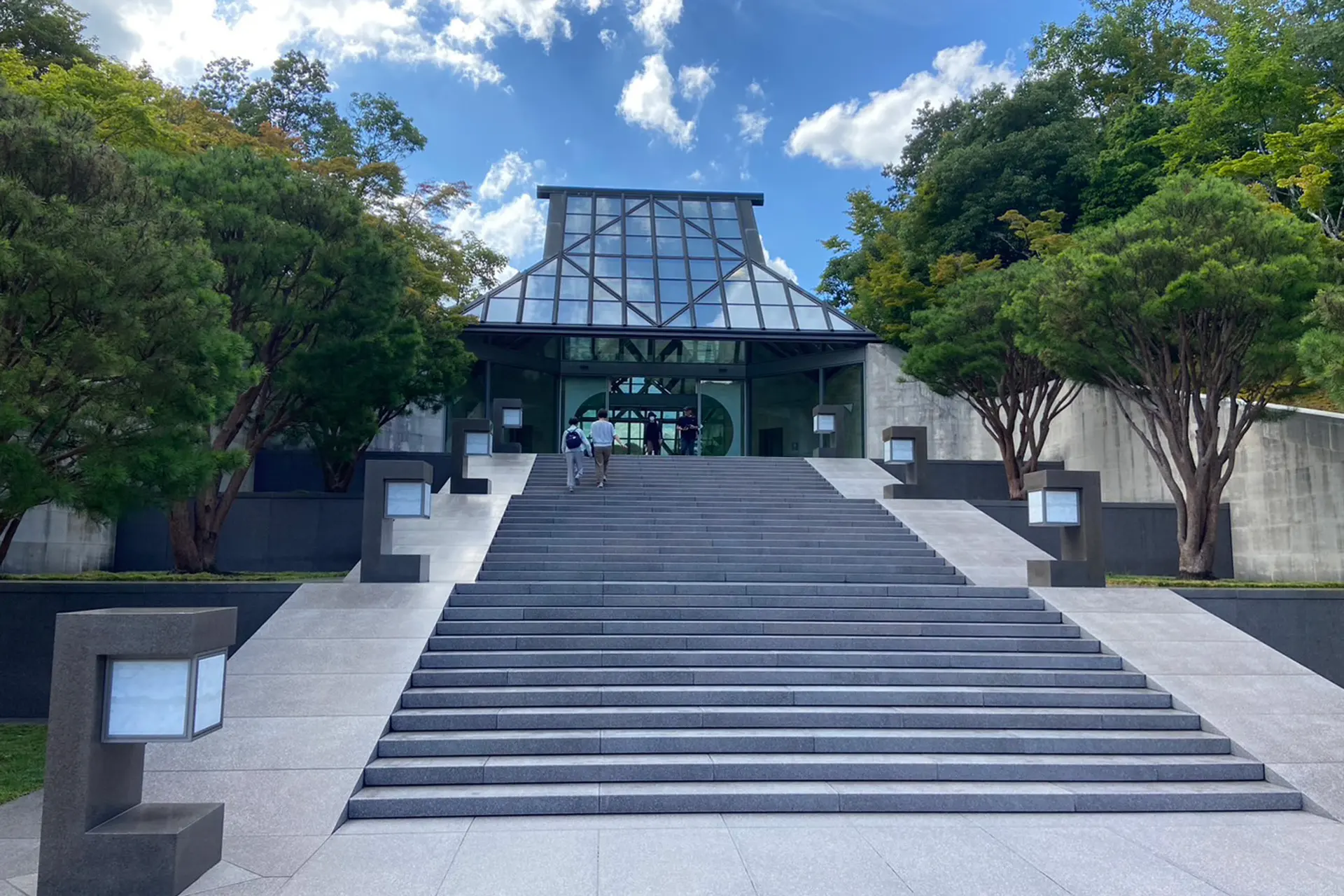 |
Getting to MIHO MUSEUM already feels like entering a hidden paradise. After a long tunnel and a glass suspension bridge, the building emerges, designed by I.M. Pei (architect of the Louvre’s pyramid).
With 80% of the structure embedded underground, the museum seamlessly blends into the mountains around it. Light, stone, and space are stripped down to their purest form, making a visit feel like meditation—where architecture and nature become one.
| Facility | MIHO MUSEUM |
| Hours | 10:00–17:00 (last entry 16:00) |
| Closed | Mondays (varies by season). See calendar |
| Admission | Adults ¥1,300 / College & HS ¥1,000 / Under JHS free |
| Photography | Indoor photography prohibited (outdoor partially allowed) |
| Address | 300 Tashiro Momodani, Shigaraki-cho, Koka, Shiga 529-1814 Google Map |
| Official Site | MIHO MUSEUM |
7. Hoki Museum (Chiba, Chiba)
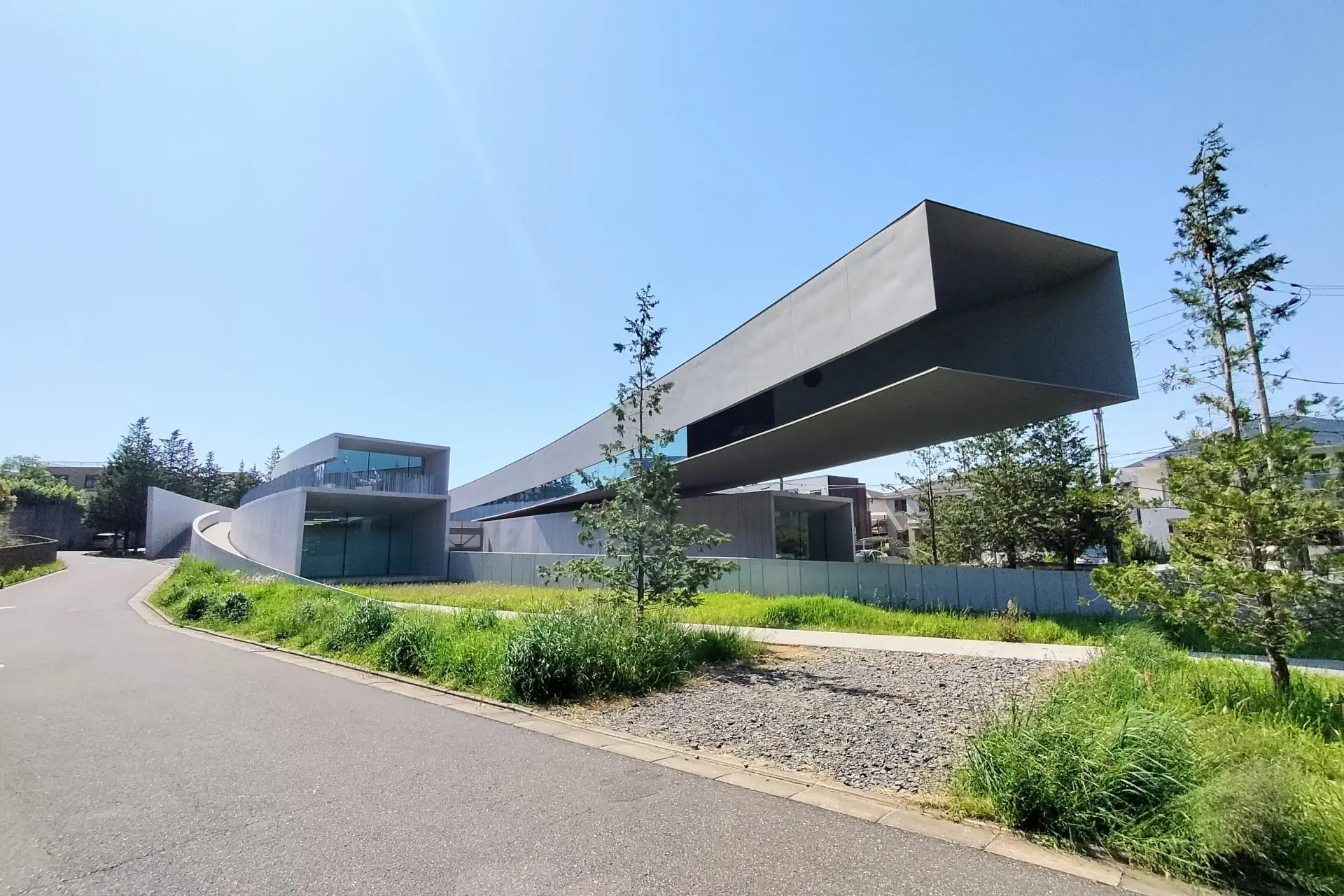 | 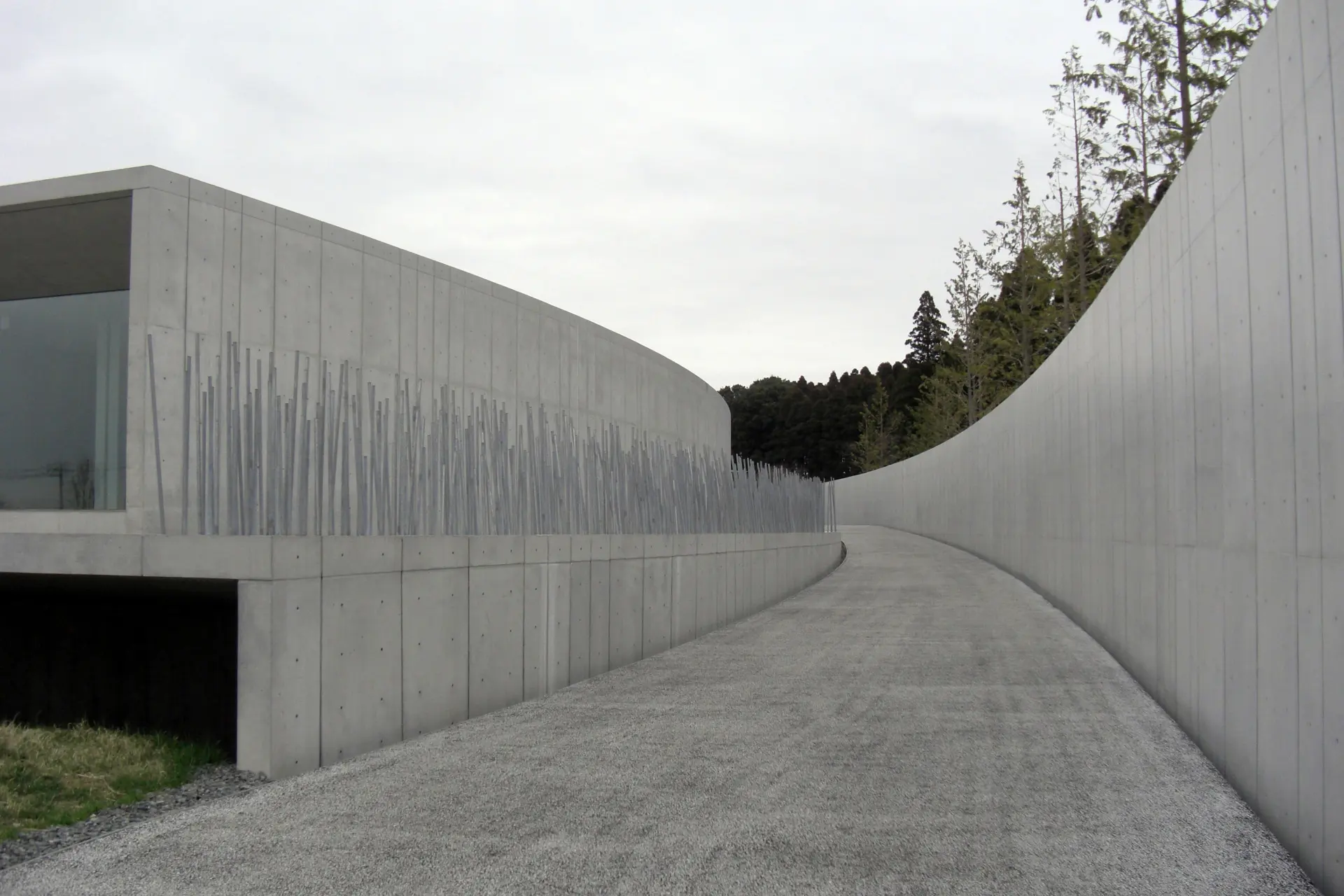 |
Next to Showa-no-Mori Park in Chiba, a razor-thin building juts out like it’s floating midair. This is Hoki Museum—the first museum in Japan dedicated entirely to realist painting. Designed by Nikken Sekkei and architect Reiko Tomita, its glass-and-concrete form shifts dramatically depending on perspective.
Inside, elongated galleries seem to hover above the ground, displaying hyper-detailed realist works so lifelike you’ll question whether they’re paintings at all. The harmony of art and architecture here is unmatched.
| Facility | Hoki Museum |
| Hours | 10:00–17:30 (last entry 17:00) |
| Closed | Tuesdays (or next weekday if holiday), year-end, and during exhibition changes |
| Admission | Adults ¥2,100 / HS, College, Seniors ¥1,600 / JHS ¥1,000 / Elementary & under ¥800 |
| Photography | Prohibited |
| Address | 3-15 Asumigaoka-higashi, Midori-ku, Chiba 267-0067 Google Map |
| Official Site | Hoki Museum |
RAW JAPAN Comment
Museums today are no longer just for “viewing exhibits”—they’ve become places to experience architecture itself. Each of these museums is a stage where the building is art, shaping the way you feel and remember your trip.
Whether it’s being overpowered by a monolith, standing in silence with natural light, or walking through a space that melts into nature, these museums prove that architecture can be just as moving as the artworks inside.
Next time you’re planning a Japan trip, consider adding one “architecture-first” museum to your itinerary. It’ll give you an experience that no photo or words can fully capture—and it might just change the way you think about museums forever.
Source Notes
This article is based on official facility information and related press releases, summarized and restructured by RAW JAPAN editorial team.
Images: PR TIMES / official museum websites
Born in the Heisei era, but spiritually from Showa. Obsessed with kissaten coffee shops, retro records, and suspiciously charming backstreets. Just a guy in his early 20s documenting Japan’s everyday weirdness—one slow groove at a time.
